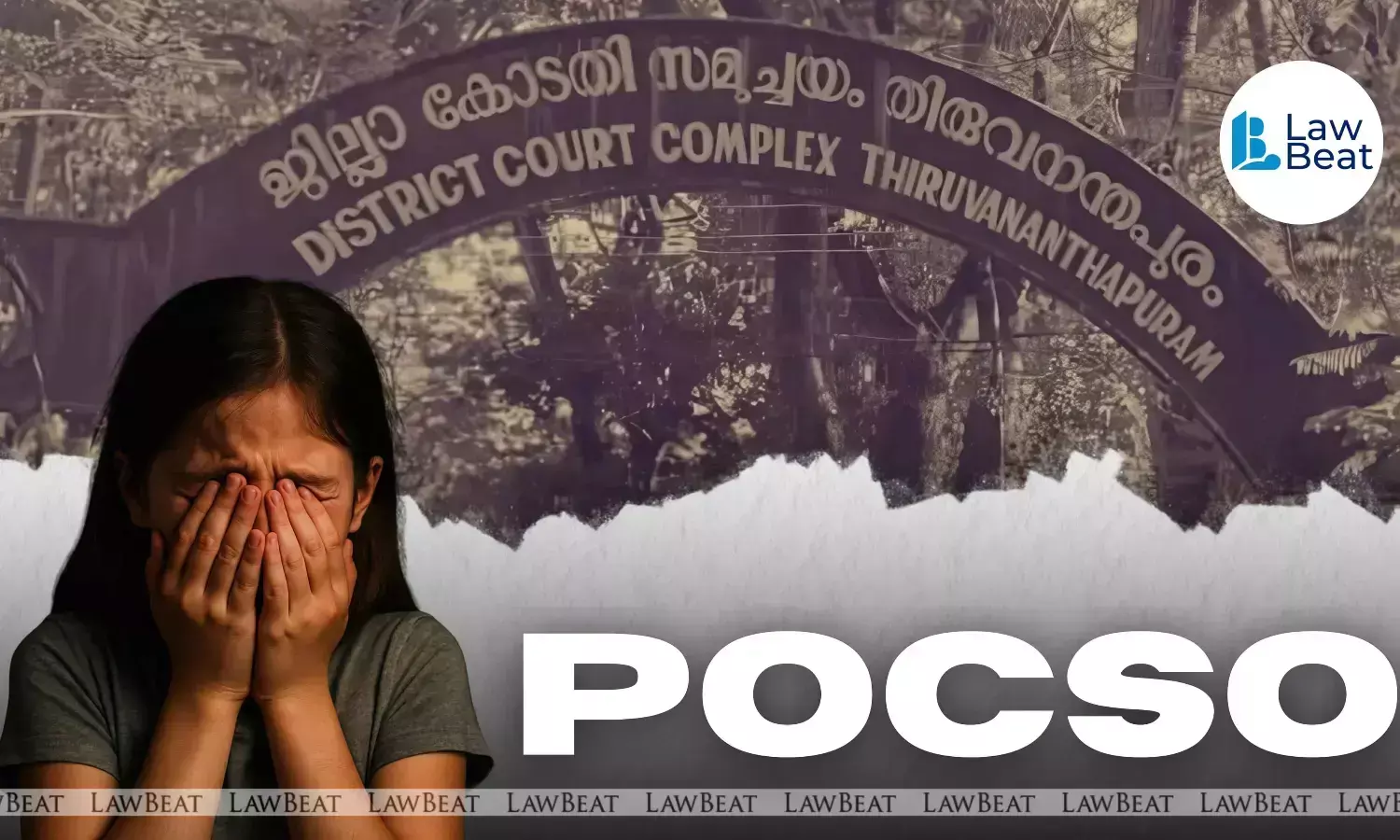POCSO: Kerala Court convicts stepfather in minor’s sexual assault case

Kerala Court Jails Stepfather for 20 Years in Child Sexual Assault Case
The Fast Track Special Court (POCSO) at Thiruvananthapuram has convicted a 31 year old man for aggravated penetrative sexual assault and other offences against his minor stepdaughter, awarding him 20 years of rigorous imprisonment. The Court held that the continuing nature of the crime conferred jurisdiction even though the assaults occurred across different states, including Andhra Pradesh, Tamil Nadu, and Kerala.
Special Judge Anju Meera Birla observed, “It is not possible in many cases to segregate between the various aspects of sexual violence, especially against children who are rendered helpless on account of their age and dependency on the elders. This can be seen to be one of the factors which is to be considered in the present case.”
According to the prosecution, the accused, Aneesh @ Lalu, stepfather of the victim, subjected her to repeated sexual assaults since 2019.
The incidents occurred while the family was staying in different locations, lodges in Visakhapatnam, a rented house in Nagercoil, and later a rented house in Thiruvananthapuram.
The victim, then aged 14, deposed that in December 2019 at Nagercoil the accused pressed her chest, and in January 2020 at Kanyakumari district, he committed penetrative assaults multiple times.
On May 21, 2020, at their residence in Thrikkannapuram, Thiruvananthapuram, the accused touched her with sexual intent and threatened to kill her, her mother, and her brother if she revealed the abuse.
The prosecution represented by Special Public Prosecutor Sri.Vijay Mohan R.S.examined 20 witnesses, including the victim (PW1), her mother (PW6), and her cousin (PW9), who corroborated her disclosure. PW2, a doctor, testified that the victim’s hymen was torn and that her account of sexual assault was consistent with medical findings. Documentary evidence such as the SSLC certificate (proving her age as a minor), medical certificates, scene mahazars, and ownership documents of the rented houses were also produced.
The defence denied the allegations and argued lack of territorial jurisdiction, asserting that many incidents took place in Andhra Pradesh and Tamil Nadu.
It was also contended that the accused had only acquaintance with the victim’s mother, that the mother had borrowed money from him, and that false accusations were fabricated.
Further, the defence highlighted delays in lodging the FIR and pointed to errors in investigation, including incorrect house numbers in the scene records.
Rejecting these contentions, the Court held that the offences were continuous in nature and that the last incident in Thiruvananthapuram was sufficient to confer jurisdiction.
Court noted that once continuity of the crime was established, the assaults across states could be treated as part of the same chain of offences. It was found that the victim was a consistent and reliable witness, whose testimony was supported by medical and circumstantial evidence.
On the issue of delay in FIR, the Court referred to the Supreme Court’s ruling in Thula Kali v. State of Tamil Nadu, AIR 1973 SC 501, which held that delay must be satisfactorily explained.
The Court accepted the explanation, observing that the victim was vulnerable, dependent on her stepfather, and only mustered courage after encouragement from her cousin. It also held that lapses in investigation, including clerical errors in identifying the place of occurrence, could not overshadow the substantive evidence.
The Court further considered the argument that Section 26 of the POCSO Act had not been complied with, as the victim’s statement was not properly recorded in the presence of her mother. It ruled that the provision was directory in nature, meant to ensure comfort for the child, and that no benefit could accrue to the accused from such technical omissions.
The Court also emphasized the statutory presumption under Sections 29 and 30 of the POCSO Act and found that the accused had failed to discharge the burden placed on him.
Finding the accused guilty under Sections 6 r/w 5(l) and 5(n), 10 r/w 9(l) and 9(n) of the POCSO Act, and Sections 506(i) and 506(ii) of the IPC, the Court sentenced him to 20 years rigorous imprisonment for aggravated penetrative sexual assault, with additional terms of five years for aggravated sexual assault and two to three years for criminal intimidation, all to run concurrently.
A fine of Rs. 30,000 was imposed, to be paid as compensation to the victim. The Court also recommended further compensation under Section 357A CrPC, directing the matter to the District Legal Services Authority, Thiruvananthapuram.
Case title: State v. Aneesh@Lalu
Date of judgment: August 29, 2025
Bench: Special Judge Anju Meera Birla
